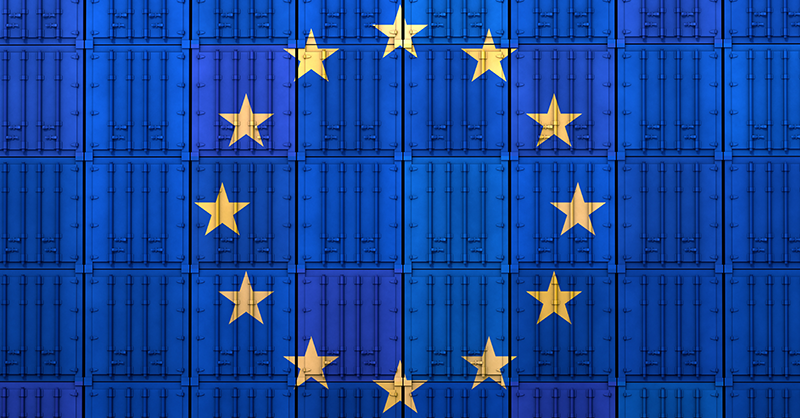Export rebates on the table again in EU carbon border levy talks
19 January 2022 10:16

Export rebates for carbon-intensive European industries are likely to feature in legislative negotiations for the Carbon Border Adjustment Mechanism, which they fear could harm their competitiveness abroad.
The proposed CBAM, an emissions levy on imports from jurisdictions with laxer climate standards, is intended to remove any disadvantage to European companies that derives from the EU’s strict emissions rules. Free carbon permits for domestic industry under the Emissions Trading Scheme, which currently fill that role, will therefore be phased out.
Manufacturers of metals, cement, fertilizers and other products say that will leave them at a disadvantage in export markets, where the CBAM won’t apply. They are calling for export rebates to offset this — and business-friendly EU governments and lawmakers, who can propose amendments to the bill, are listening.
The European Commission didn’t include any mention of rebates when proposing the bill last year, fearing that they could put the CBAM in breach of international trade rules. Those questions are unresolved, but the strength of feeling among industry figures suggests the idea will be put back on the table during the legislative process.
Import, export
The CBAM is one of the most innovative elements of the commission’s “Fit for 55” climate package that seeks to drastically reduce the bloc’s emissions over the coming decades. Rather than giving heavy industry a license to pollute, as the current system of free emissions permits does, it seeks to put the onus on foreign producers to adhere to EU standards, or pay a fee.
That should ensure a level playing field on the EU market, if it works as intended and survives legal challenges at the World Trade Organization. European industry and its foreign rivals will be held to the same high standard.
But the same can’t be said of foreign markets. The CBAM’s levelling effects will stop at the EU border — unlike the free carbon permit that it replaces, which were granted at the point of production.
Upsetting this balance wouldn’t just hurt European companies, their advocates warn: It could also cause global emissions to rise by tilting foreign markets away from European exporters, which are cleaner than many of their foreign rivals under the current system.
Under the commission’s proposal, the sectors covered by the CBAM would progressively lose their free carbon permits as the new measure is phased in. The aluminum, iron, steel, cement and fertilizer sectors would lose all their free permits by 2036.
Legislative process
Industry representatives lobbied the commission on these grounds before it put forward its draft law, to no avail. The commission has said that such a move could be perceived as an incentive to export — in other words a subsidy, illegal under the rules policed by the WTO.
Maria Elena Scoppio, a tax lawyer for the commission, said at an online event* last week the EU executive is “not deaf” to concerns on export competitiveness, but it foresees the impact to be minor and soon to be “minimized” by a “global movement” of countries beefing up their climate policies.
That may be utopian, industry lobbyists warn, and EU legislation should protect them in the event that other jurisdictions don’t match the bloc’s climate ambition. They are now turning their attention to the European Parliament and the Council of the EU, which groups the 27 national governments.
The two bodies are currently in internal talks to agree on their respective negotiating positions, either or both of which could include proposed amendments regarding export rebates. They must then agree with each other, with the commission moderating the talks, for the amended law to be passed.
At a meeting of national representatives in December, Germany — a big exporter of manufactured goods — raised the issue as part of a broader discussion on the EU legislative plans to meet its 2030 and 2050 goals.
The lawmaker leading on the file in the parliament, Dutch social democrat Mohammed Chahim, has for now shied away from any concrete proposal on this issue, citing doubts over WTO compatibility.
Nevertheless, in Chahim’s proposed version of the law, there’s a pledge to assess the CBAM’s impact on exports by 2026 and eventually come up with a legislative proposal compatible with international trade rules.
Speaking at the same event with Scoppio, the lawmaker said that several political groups are working on “solutions” for exports, in a sign the industry could find some helping hands in the EU chamber.
Bargaining chip
None of this guarantees that any kind of protection for exports will make it in the final legislation. The compatibility of rebates with international trade rules remains a divisive issue among trade lawyers, industry figures and policymakers. And the same applies to the design of such measures.
In one of the most advanced proposals on the matter, EU manufacturers alliance Aegis Europe suggests “export adjustments” could be shaped as free carbon permits to be allocated to EU producers for their exports only, or as a refund of the ETS obligations for the part of production exported. Those could coexist with free allocations as well as the CBAM on imports, the industry group argues.
What’s likely is that these exports-related measures could turn into a bargaining chip in the negotiations. Pro-businesses policymakers might advocate for a later introduction of the CBAM or the maintenance of free allocations for EU producers, in exchange of the missing rebate scheme for exports.
It’s too early in the negotiations to say where the debate will land. What’s certain is that what one industry figure describes as a “big hole” in the EU border levy proposal will need to be filled, one way or the other.
*Border Carbon Adjustment in the EU: EP draft position, European Roundtable on Climate Change and Sustainable Transition, online event, Jan. 12, 2022.
Related Articles
No results found
